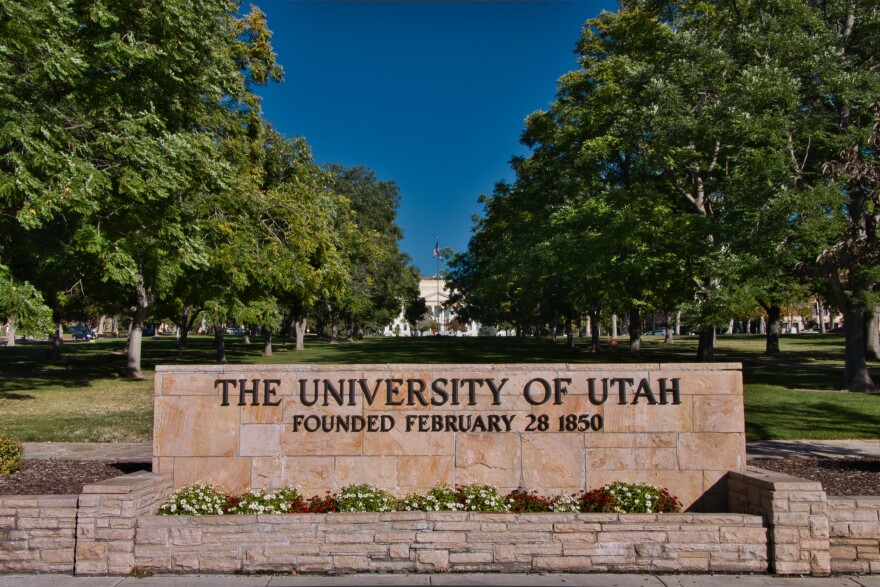Beyond the increasing cost of attendance, college students face a barrage of other mandatory fees, ranging from textbooks to administrative taxes. And at at least two Utah public colleges, those additional fees have been on the rise over the past decade. Some are also getting tacked on unfairly, according to a state audit released Tuesday.
The report looked at two Utah schools — the University of Utah and Utah State — but noted fees should be examined across all eight of Utah’s public colleges.
Mandatory fees are supposed to be used for specific services, the report said, but for some that doesn’t appear to be the case. All students at the University of Utah, for example, pay a study abroad fee, even though only a handful participate.
Students are also getting charged for things auditors said should be covered by tuition, such as a library fee at Utah State University.
Neither pass what State Auditor John Dougall called the “reasonable fee test” and should therefore be reconsidered. Fees that fail to meet the test should be eliminated and students should receive a partial refund of fees for services they were unable to access during the COVID-19 closures, the report said.
Dougall added that the system of higher education’s process for approving fee changes isn’t transparent and has given little opportunity for the public to weigh in.
“Anecdotally, what we've heard from various folks is that it's easier to raise fees than tuition,” Dougall said. “So while there's been downward pressure on tuition, there hasn’t necessarily been the same oversight over the fee process. You can see there probably is some merit to those anecdotal stories.”
In a statement, the Utah System of Higher Education said it will review the audit’s seven recommendations, including better defining what constitutes a mandatory fee and eliminating those that fail to meet the reasonableness test. The statement said the board will review all fees and consider which ones should be rolled into tuition.
The report’s findings, however, aren’t new. Auditors cited a similar report done in 2011, noting some of the same issues have yet to be addressed.
USU responded to the audit with a statement that said student library fees are used mostly to purchase licensed databases only accessible by USU students and employees.
“Last year, student fees were directed toward services students have requested, including open education resources, materials and technology,” the statement said.
Chris Nelson, the U’s communications director, said the university has gravitated toward fees rather than rolling it all into tuition in an effort to help students understand where their money is going. He pointed to a list of student fees on the university’s website which breaks down the various items.
He added that some fees are approved with the help of the student government body. They approved the study abroad fee, which helps fund a scholarship available to all students. Other fees that have gone towards new buildings — like the recently built Student Life Center — also came from proposals approved by students in the past.
“A lot of students paid for that building who would never have actually been able to use it,” Nelson said. “It's a collective good kind of argument you have to make to try to make the university's campus as strong and appealing for students as possible.”
Dougall said while the two reports focused on fees, they also raise broader questions about the total cost of going to college.
“Clearly with the shut down and remote schooling, various folks are questioning what is it we pay for versus what we got?” he said. “I think there needs to be scrutiny about what is the real cost of operating our institutions.”
He said that will be up to the system of higher education’s new board, when it is combined with the state’s technical colleges July 1. But he said it will also be up to students and their parents to push back on charges they don't think are fair.
In a separate statement, USU officials said they recognize the cost of college has become increasingly unaffordable for some, and that tuition and fee decisions are not made in isolation.
“We have an extensive internal review process, which is public and which includes student leaders and the student population at large before our own Board of Trustees considers any increase," the statement said.
Jon Reed is a reporter for KUER. Follow him on Twitter @reedathonjon


